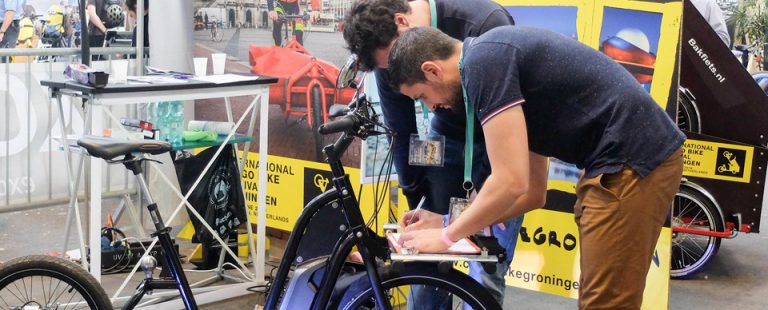
By Deirdre Buist SURFLOGH Interreg North Sea Region
On 28th August a practical research study on the use of light electric freight vehicles (LEFVs) for city logistics was presented at the LEFV-LOGIC Conference in Amsterdam. Top Dutch universities have worked with more than sixty organizations from the transport and logistics sector, knowledge institutes and municipalities to determine if LEFVs are a good alternative for the ever-growing number of delivery trucks in our cities. Certainly a relevant topic for Surflogh!
Jeroen Berends and Sjouke van der Vlugt, Policy Advisors for the Municipality of Groningen and partners in Surflogh, joined a panel of experts during the event and reported back. Ten takeaways that we thought would be worth highlighting:
- The diversity of stakeholders makes working on city logistics so complex.
- The number of transport deliveries has rocketed because of online 24/7 consumerism.
- LEFVs are compact, electric, quiet, flexible delivery vehicles with zero emissions.
- Current legislation poses some hindrances regarding further development of cargo bikes.
- The maximum power of an electric bike is 0.25 kW – more is needed to transport heavy goods.
- Municipal traffic policies are changing, with the focus more on pedestrians and cycling zones – safer, cleaner, quieter. This poses problems for traditional delivery vans. LEFVs could be the answer.
- The diversity in the market is reflected in the range and utilization of LEFVs.
- New networks are being formed – both on a corporate level and amongst small-scale/one-man courier companies.
- An efficient use of LEFVs demands a distribution network within the city or the use of cargo hubs.
- Technological aspects and charging capacity need improving, legislation must be adapted and awareness raised.
This meeting was certainly an inspirational one for our Surflogh partners. The project results prove yet again how cooperation between the business sector, governments authorities and knowledge institutes can multiply the power of innovation. Follow this link for the LECV-LOGIC final report lefv-logic.english.
